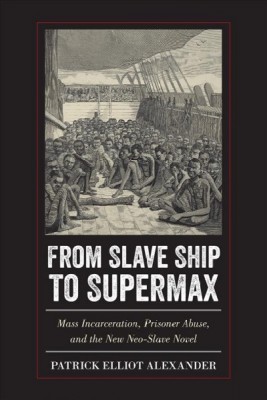| From Slave Ship to Supermax: Mass Incarceration, Prisoner Abuse, and the New Neo-Slave Novel Contributor(s): Alexander, Patrick Elliot (Author) |
|
 |
ISBN: 143991415X ISBN-13: 9781439914151 Publisher: Temple University Press OUR PRICE: $33.20 Product Type: Paperback - Other Formats Published: November 2017 |
| Additional Information |
| BISAC Categories: - Literary Criticism | American - African American - Social Science | Ethnic Studies - African American Studies |
| Dewey: 813.540 |
| LCCN: 2017012896 |
| Physical Information: 0.7" H x 6" W x 8.9" (1.05 lbs) 266 pages |
| Themes: - Ethnic Orientation - African American |
| Descriptions, Reviews, Etc. |
| Publisher Description: In his cogent and groundbreaking book, From Slave Ship to Supermax, Patrick Elliot Alexander argues that the disciplinary logic and violence of slavery haunt depictions of the contemporary U.S. prison in late twentieth-century Black fiction. Alexander links representations of prison life in James Baldwin's novel If Beale Street Could Talk to his engagements with imprisoned intellectuals like George Jackson, who exposed historical continuities between slavery and mass incarceration. Likewise, Alexander reveals how Toni Morrison's Beloved was informed by Angela Y. Davis's jail writings on slavery-reminiscent practices in contemporary women's facilities. Alexander also examines recurring associations between slave ships and prisons in Charles Johnson's Middle Passage, and connects slavery's logic of racialized premature death to scenes of death row imprisonment in Ernest Gaines' A Lesson Before Dying. Alexander ultimately makes the case that contemporary Black novelists depict racial terror as a centuries-spanning social control practice that structured carceral life on slave ships and slave plantations--and that mass-produces prisoners and prisoner abuse in post-Civil Rights America. These authors expand free society's view of torment confronted and combated in the prison industrial complex, where discriminatory laws and the institutionalization of secrecy have reinstated slavery's system of dehumanization. |